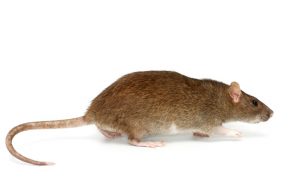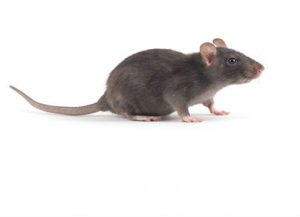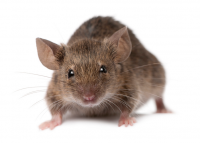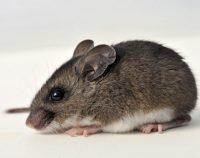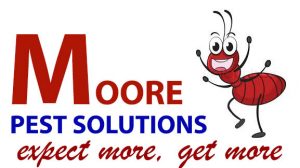Contact Us Today For FAST Service

Rodent Pest Solutions
Rodents such as mice and rats can carry harmful diseases. Diseases from rodents can spread to people through bite wounds, eating contaminated food or water, or breathing in germs from rodent urine or droppings that are stirred into the air. People can also get diseases from rodent ticks, mites, and fleas.
It is best to contact a professional pest control company when dealing with large mice and rat infestations. We have the knowledge and experience to eliminate them and keep you pest free.
Aw, Rats
Rats are communal creatures that are carriers of many diseases; such as leptospirosis, plague, rat-bite fever, salmonellosis. (info on these diseases click here)
There are two species of rats found in the Pacific Northwest, Norway rats and roof rats, and they are different enough in their habits that it can be important to know which is which.
Norway rats, sometimes called brown or sewer rats, are large stocky burrowing rodents. Their burrows are found along building foundations, beneath woodpiles, and in moist areas in and around gardens and fields. When Norway rats invade buildings, they usually remain in the basement or ground floor.
Roof rats, also called black rats, are smaller and sleeker than Norway rats and have much longer tails. Roof rats are agile climbers and usually live and nest above ground in shrubs, trees, and dense vegetation. In buildings, they are most often found above ground level in attics, walls, false ceilings, and cabinets. The roof rat prefers milder climates.
These rats are drawn to any sort of outside food sources such as pet food, chicken food, bird seed and kitchen scraps in compost piles. Even compost without kitchen scraps provides insects that rats consume, unless the pile is kept hot enough to kill them. If rats get inside the house, they’ll dine on whatever food they find there and look for places to nest and reproduce. They are very opportunistic and have an easy time adapting to living in the presence of humans. Rat droppings can be differentiated from mice droppings in that they are rectangular, larger in size (approx. 1/2″ to 3/4″), and are in groupings.
Mice aren’t Nice
Mice are communal creatures that breed prodigiously. Deer mice are the main carriers of a virus that causes hantavirus in people. Hantavirus is a rare, but potentially fatal respiratory disease.
There are two species of mice that are a troublesome pest to residents of the Pacific Northwest, the Deer Mouse and more prominently the House Mouse.
The only differentiating attribute of the Deer Mouse and House Mouse is their belly. Deer Mice have white bellies and House Mice have bellies that are brown.
These mice are approximately 3″ long, are brown in color, have large ears and tails that are as long as their bodies. Although mice have adapted to habitat among humans, they are very fearful of them and are adept at hiding.
Mice can be identified through chew markings and their droppings which are 1/4″ long and are pointed on the ends. Mice defecate as they move in search of food and water, so they can be found in multiple areas that are usually behind such things as refrigerators, stoves, and other concealed areas.

Rat vs mice droppings
Don’t Attract Rodents
The best way to prevent a rodent infestation is to remove their sources of food, water, and shelter.
- Store pet and people food, bird and lawn/garden seed, and animal feed indoors in containers with tight fitting lids.
- Clean up food waste and use thick plastic or metal garbage cans with tight lids.
- Keep the area around your home and outbuildings clear of junk and debris.
- Trim vegetation and don’t allow plants to grow up alongside your house.
- Clean up fallen fruits or nuts from trees and animal waste.
- Routinely mix compost piles to encourage rapid decomposition.
- Store firewood, lumber, or hay at least 12 inches off the ground and away from your home.
Seal Up Your Home
Seal all gaps and holes into your home or outbuildings. Mice can squeeze through openings as small as a quarter of an inch. Fill small holes with steel wool and caulk. Use lath screen or metal, cement, hardware cloth, or metal sheeting to fix large holes. These materials are available at hardware stores. The following areas should be inspected for gaps:
- Inside, under, and behind cabinets and appliances.
- Around doors, windows, and the foundation.
- Attic, crawl space, dryer, and floor vents.
- Around pipes and holes for electrical, plumbing, cable, and gas lines.
- Crawl space entry points.
- Around the fireplace.
- Between the inside floor and wall juncture.
- Among roof rafters, gables, and eaves.
Pest Squirrels
There are several species of squirrel that are indigenous to the Pacific Northwest. The two urban squirrels that pose a pest problem are the Gray and Fox Squirrels.
The Gray Squirrel is the largest of the two species. Gray Squirrels are 18″ to 24″ in length, have gray coats, cream-colored undercoats, and have long bushy tails with white edges. They are partial to oak and conifer trees.

Western Grey Squirrel (Sciurus griseus)
The Fox Squirrel is the most common squirrel in urban environments. It is about 22″ in length, with a large (9 to 10″) bushy tail, and has reddish brown fur with tan undersides.
Squirrels have an ability to chew trough anything. When they are building their nests they chew through siding, underneath eaves, and they can chew through electrical cables. This behavior can create a fire hazard and the squirrels should be dealt with expediently.

Fox Squirrel (Sciurus niger)
Service you can trust, no pest hassles to manage. We strive to keep your environment pest-free, safely protecting your home, business, & investments. You have better things to do than handle a pest management crisis.
We simply deliver some of the most dependable service in the business. We have flexible appointments that are convenient for you. We use the safest and most effective products on the market. Strategic placement of our top of the line products, guarantees maximum protection, safe for your family, pets, and our ecosystem.
Licensed & Insured
Environmentally Safe Solutions
Child & Pet Friendly Solutions
100% USA Based, Locally Owned
Leadership Team – 50 Years in the Business
Safety is Our Top Concern
info@moorepestsolutions.com
OR 503-342-4329
WA 360-635-5345

